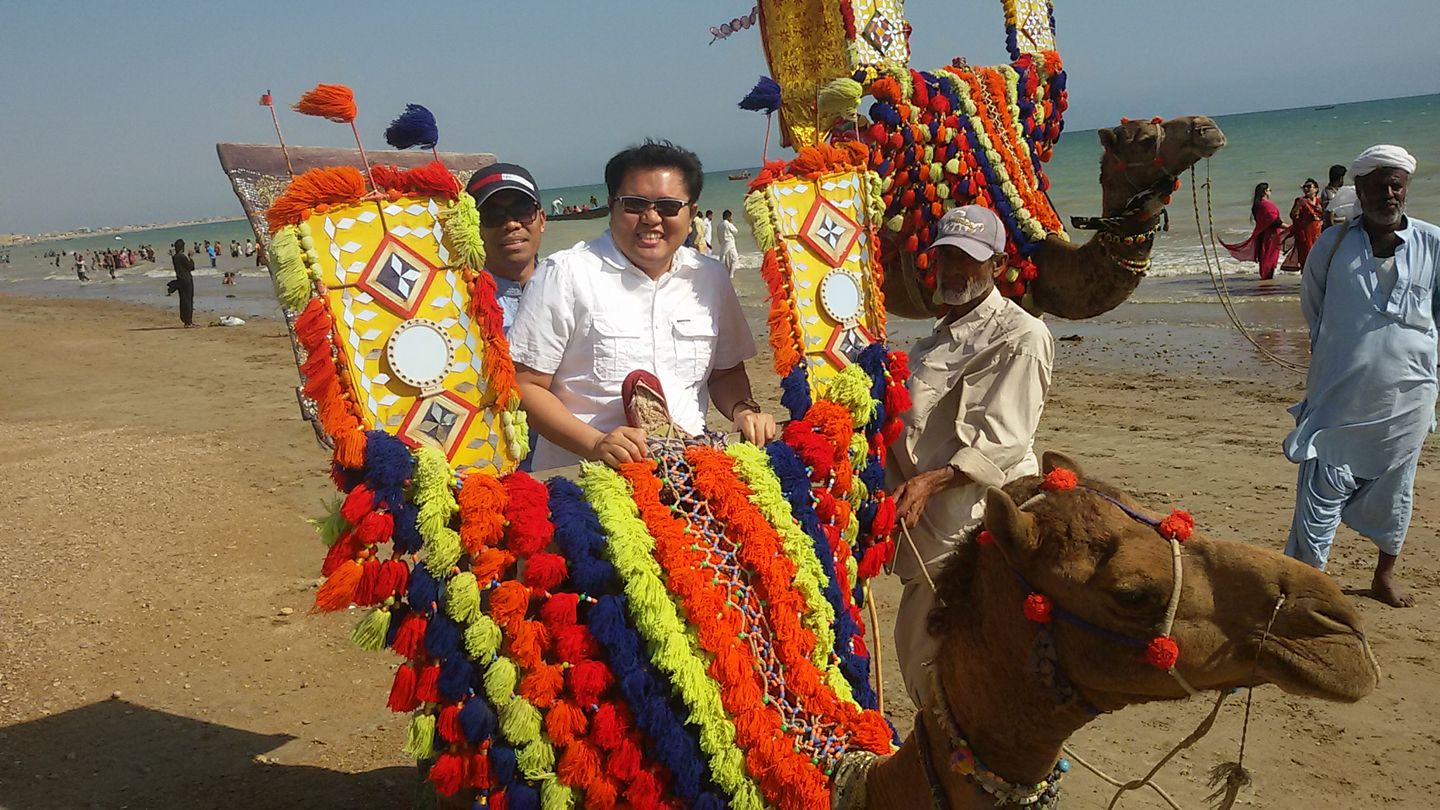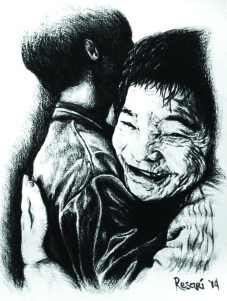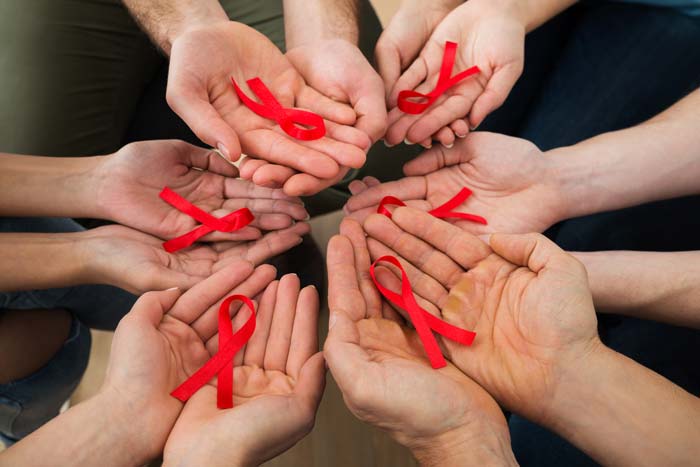Our Hideaway
Presence, A Source of Healing
By Elbert Balbastro
The author is a Columban seminarian on a two-year First Mission Assignment (FMA) in Pakistan. Here he shares about his pastoral experience while in the Philippines. Both FMA and Pastoral Ministry form parts of the formation program for seminarians preparing to become a Columban missionary priest.

Elbert Balbastro (front) and Jerry Lohera (back) in Pakistan, March 2018
“I want to be healed. Please help me.” This is a very common petition by the patients at San Lazaro Hospital, Manila. My pastoral experience there for eight months visiting Tuberculosis and HIV/AIDS patients opened my eyes to see how these diseases had affected them. Through this ministry, I saw the “poorest of the poor” in them because aside from poor health, most of them were also deprived from material and financial resources.
In my journey as a Columban missionary, I find this ministry to be the most difficult one by far. The patients are very vulnerable. Many of them are on the verge of losing hope. Since Tubercolosis is an airborne disease, patients are placed in an isolated area. Hence, some patients have no watchers or someone to attend to their needs. In a similar way, most of the HIV/AIDS patients feel alienated or condemned because of the stigma brought by the disease. I always left the hospital with a heavy heart because of their situation. However, I do feel and believe that my presence there had somehow helped ease their pain and suffering.
One time while I was praying, I remembered expressing my sentiments to the Lord. As I meditated on the gospel about the visitation of Mama Mary to her cousin Elizabeth, I was reminded of the hardships that Mary, who at that time was pregnant with Jesus, had gone through to help her cousin Elizabeth. For me, her “Yes” to God in the annunciation was her strength in being able to continue to help others. Going to San Lazaro hospital every Saturday was also heavy for me as I was carrying some of my own difficulties in my academics, personal and community life. However, my commitment, my “yes”, to the Society of St. Columban was what gave me strength to minister to the patients there.

More Than A Hug, a charcoal painting by Jao Resari, 2014
Along the way, I learned to embrace and love the hospital ministry because it taught me a lot of things. First, I need to listen and not do the talking all the time. Sometimes, that is only what the patients need – someone to listen to them. Second, patience and understanding are needed because the patients are vulnerable and they can easily get irritated, impatient and sometimes even unkind. So, on my part, I needed to be compassionate so they could feel the love of God for them. Third, dialogue is important. The patients are Christians and non-Christians. Regardless of their religious beliefs, I ministered to them and talked with them, hoping that my presence would be of help, not to convert them, but just to be with them. Once I encountered a Muslim father whose son was at the verge of dying. He asked for my prayers. At first, he was hesitant to talk to me but when he realized that I was not there to convert anybody he shared his sadness for the doctor could not cure his only son. I could not fathom how hard it must be for him to see his only son fading away. As I reflected on this experience I realized that hospital chaplaincy is also a good avenue for dialogue. Lastly, I have learned to intensify my prayer life because this ministry entailed a lot of prayer on my part, not only for myself but especially for the patients. I really felt sad and even angry whenever a patient would express his/her fear of going to hell simply because he/she got the disease. To add to their burden, some of the church workers and members of the Catholic faith have been shunning them. In reality, they are already suffering a lot and they do not need any of these insults or condemnation.
I hope and pray that people would feel compassion towards them. It is in extending kindness and compassion that healing may come to them.

For HIV/AIDS Patients, Massage Provides a Touch of Humanity [Massage Magazine]
Healing is important in our life and may come in different forms. In one of my Saturday visits, I met Kuya Boy who was suffering from HIV/AIDS with Tuberculosis. Listening to him, I inquired what he wanted to ask from God. At the back of my mind, I expected him to say, “I hope He will restore me to good health.” How wrong I was! Instead, he said, “I hope my enemies are here so that I can ask forgiveness from them. I hope that my parents, siblings, family and friends are here so that I can say how grateful I am for their love. I hope I can embrace them. You know, brother, I have accepted the fact that I will die today and what I need now is emotional healing.” On hearing this, I asked Kuya Boy if he was willing to do it with me pretending that I were his enemies or friends or relatives. Things went well. It dawned on me that some patients just needed someone to express their thoughts and feelings with and that could already be their source of healing.
My one whole year of journeying with the patients at San Lazaro hospital strengthened my vocation and love for God and other people. I imagined Elizabeth, in her old age, carrying a baby in her womb. How hard it must have been for her, but that the yes and commitment of her cousin, Mary, had somehow eased the burden and gave her strength to carry and give birth to John the Baptist.
I hope that we can also find time to extend our presence and virtues of patience, understanding, commitment and compassion to other people, especially to those who are sick. They deserve our love, not humiliation and condemnation. Just as Christ brings life to this world, we, too, can bring a life-healing presence to the patients.
Related articles:
- “A Glimpse of Love for the Unseen” by Jao Resari, a Columban lay missionary who wrote a reflection about a charity art exhibition that raised awareness for HIV and AIDS in Taiwan in 2014
- World AIDS Day 2013, featuring stories of three Columban missionaries working with persons affected by HIV/AIDS

